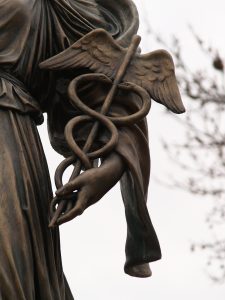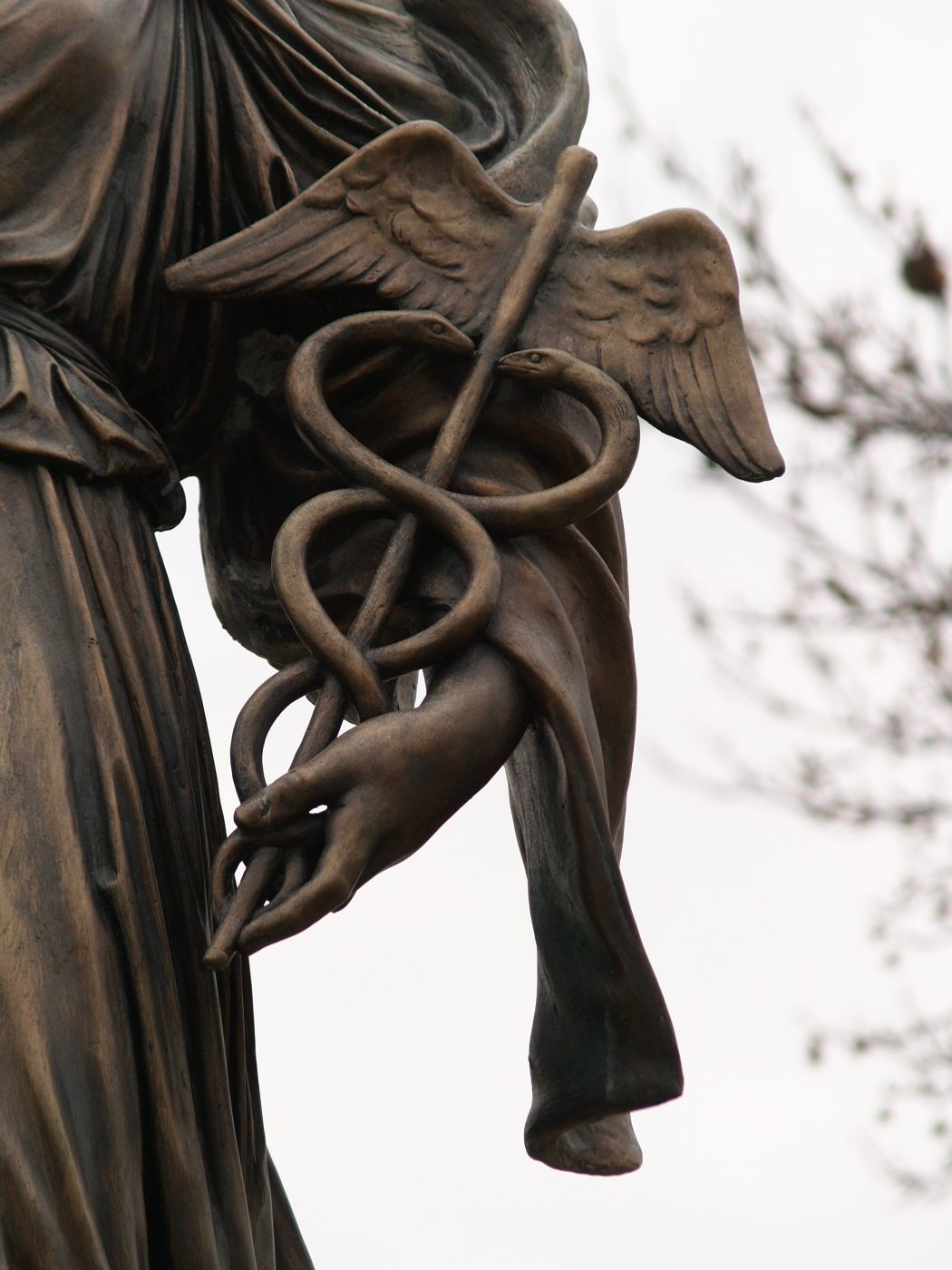When I was asked to write this article, I initially declined.
First of all, I wasn’t really sure what I would write about. A piece on being atheist in medicine would be just a piece about me in medicine. I didn’t feel that identifying as non-religious implied that my identity had a deficit, and I had no desire to write anything anti-religious either.

Courtesy of takomabibelot through Creative Commons attribution 2.0
As I thought more about the topic, though, I realized that I was also concerned about the stigma of atheism. As with many other subcultures, our public image is often defined by the most vocal and radical amongst us, those who disparage any views that do not align with their own. Invoking the atheist label often conjures up images of hedonism and arrogance—as if people who lived without fear of karmic retribution could not possibly have a moral compass. And there are also perceptions of the casual atheists and agnostics who simply have not given much thought to their spirituality.
So I changed my mind. And now, the atheist I want to present to you is me: I would love to learn more about your religion; I do want to make the world a better place; and yes, I have given a lot of thought to what I do and do not believe.
Let’s start with clarifying where I stand. As I alluded to above, there is a lot of diversity within atheism, perhaps moreso than in any other belief system, and to know one atheist is to know only one atheist.
Some of you may have heard of something called Pascal’s wager. The French philosopher Blaise Pascal (yes, the triangle guy) argued that even with an infinitesimally small probability of God’s existence, it would rationally be in our favor to believe in God in order not to risk losing eternal salvation. Even though this argument does nothing to prove the existence of God, given this risk-benefit analysis, it would seem ridiculous that anyone would be any type of atheist. This wager seems to encourage false belief, however, and deeper than that, it implies that belief derives purely from choice.
I would argue instead that most of us have our beliefs, either religious or non-religious, because we are drawn to what we think is the closest to being right. Arbitrarily following a religion out of fear for being wrong would be insincere, and that type of insincerity does not sit well with me. In practice, this dilemma often comes into play when an atheist health provider is asked to pray with a patient. In deference to the patient, most of us would maintain a respectful silence, but to say the words would be to say a lie.
I have fortunately not encountered much conflict regarding my beliefs thus far in the nascent stages of my medical career. However, one brief moment stands out from back when I was still the social services volunteer for a student-run free clinic in San Diego. I had been helping a patient with something, and we were chatting for a while. As we were saying goodbye, she asked me what church I went to. When I said I didn’t go to any church, she hesitated and then asked if I went to any temple. When I again said no, she looked absolutely stunned. In the moment, I wasn’t sure whether she was just surprised that a person without religion would have any interest in helping others or whether she was mourning the loss of my eternal soul. If it was the former, I hope that I helped to change her perspective a little, but if it was the latter, I am still uncertain how I would have been able to reassure her.
As future physicians, we are encouraged to hold onto our own beliefs, but regardless of what they are, patient autonomy always takes precedence. The conflicts between atheism and religion in medicine seem to be analogous to those between different religious and cultural belief systems in general. For instance, as an atheist medical student who has already encountered several patients who are Jehovah’s Witnesses who refuse to consent to any type of blood transfusion, I feel that I have as much internal conflict as many religious providers (though our specific opinions on the matter may differ), but we would hopefully all respect our patients’ wishes.
My greatest concern regarding the beliefs of future patients understandably has to do with end-of-life care, but I am more uneasy with the idea of comforting patients who are also atheists rather than those who are not. While many atheists do find peace as they approach the end of their lives, many others (and many theists as well) do not. It would seemingly be easier to console those who believe in an afterlife than those who feel that they are facing the end of their existence. As someone who is considering oncology as one of my possible career options, it is a conversation I am hoping I will learn to have.
As I have passed more milestones in my life and interacted with more and more people, I have seen how many of the perspectives I held when I was younger have turned out to be quite biased. My ideologies have changed over the years, and I am always trying to re-evaluate my beliefs to understand why I believe what I do. If I disagree with someone else’s position, I can tell myself that their life journey has been different from my own, and I have no idea how “I” would have turned out if I had that person’s mind, body, and upbringing. And I hope that others would do the same for me.
Sophie Sun is a medical student at The University of Arizona College of Medicine – Phoenix, class of 2018. She completed her undergraduate degree at UC Berkeley and earned a PhD in chemical biology from The Scripps Research Institute, where she focused on unnatural amino acid incorporation and antibody engineering. Some of her current academic interests include student-run free clinics, vaccine compliance, and accountability in research. However, she might sound more excited when talking to you about classic American cinema, urban compost collection, and French dessert recipes. She is currently pursuing a career as a Med-Peds physician.

